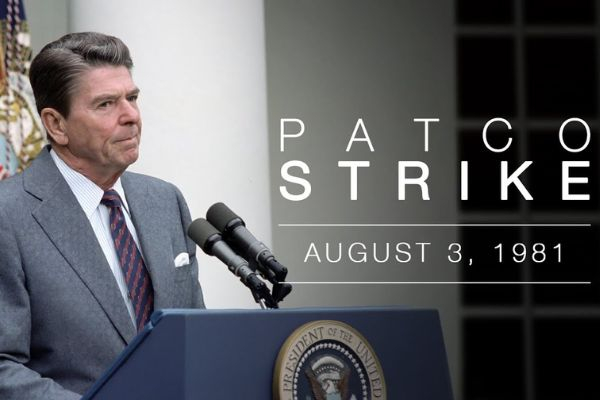Dealing with PATCO
The Professional Air Traffic Controllers Organization (PATCO) went on strike on August 3, 1981, calling for 32-hour workweeks, increased compensation, and improved working conditions. A federal provision that forbids government unions from striking was broken by the strike. As air traffic carried aircraft for airborne early warning and control, the strike also had an impact on national security (AWACS). Ronald Reagan warned that the air traffic controllers would be fired if they didn't go to work within 48 hours after the PATCO strike was labeled a "peril to national safety." Of the almost 13,000 controllers, just about 1,300 went back to work. Reagan dismissed the 11,345 striking air traffic controllers who disobeyed the order on August 5 and permanently barred them from federal employment.
One of the most significant moments in US labor history of the 20th century was the PATCO strike's failure. Reagan's move, albeit debatable given its wide-ranging effects, resulted in a sharp decline in illegal work stoppages against the federal government. Prior to 1981, there were over 300 major work stoppages annually on average; by the 2000s, that number had dropped to under 30.











